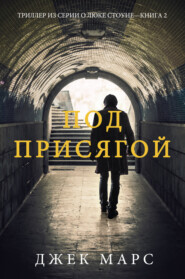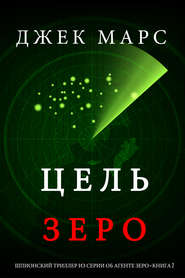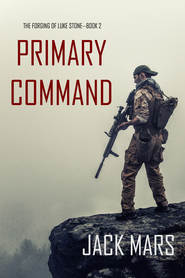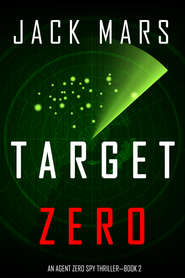По всем вопросам обращайтесь на: info@litportal.ru
(©) 2003-2024.
✖
President Elect
Настройки чтения
Размер шрифта
Высота строк
Поля
The man slapped Norman across the side of his head.
“Shut up!” he hissed.
The man’s hat had fallen from his head. Now Norman could see his fierce and dangerous blue eyes. They were eyes without pity. They were also without anger. Or humor. They betrayed no emotion of any kind. From inside his coat, he pulled a black gun. A second later, he pulled out a long silencer. Slowly, carefully, in no rush at all, he screwed the silencer onto the barrel of the gun.
“Do you know,” he said, “what this gun will sound like when it goes off?”
“Guh!” Norman said. His whole body shook uncontrollably. His nervous system had gone haywire – so many messages flooding it at once, trying to move through the infrastructure, that he was frozen in place. All he could do was shake.
For the first time, Norman noticed that the man was wearing black leather gloves.
“It will sound like someone coughed. That’s the way I usually think of it. Someone coughed, one time, and tried to do it quietly so as not to disturb anyone else.”
The man pressed the gun to the left side of Norman’s head.
“Good night, Mr. Norman. I’m sorry you didn’t get the job done.”
* * *
The man gazed down at what remained of Patrick Norman, former independent investigator. He had been a tall, thin man wearing a gray trench coat with a blue suit underneath. His head was ruined, the right side blown out in a large exit wound. Blood was pooling around the head on the wet grass and running onto the path. If the rain kept up, the blood would probably just wash away.
But the body?
The man handed the gun to one of his assistants, the one who had pretended to be homeless earlier this evening. The homeless man, also wearing gloves, crouched by the body and pressed the gun into the right palm of the dead man. Meticulously, he pressed each one of Norman’s fingers onto the gun in various places. He dropped the gun about six inches from the body.
Then he stood and shook his head in sadness.
“A pity,” he said in a Londoner accent. “Another suicide. I suppose he found his work stressful. So many setbacks. So many disappointments.”
“Will the police believe it?”
The Englishman offered a ghost of a smile.
“Not a chance.”
CHAPTER TWO
November 8
3:17 a.m. Alaska Time (7:17 a.m. Eastern Standard Time)
Slopes of Mount Denali
Denali National Park, Alaska
Luke Stone did not move at all.
He crouched perfectly still on a rooftop, behind a low stairwell outbuilding made of slapped together cement. The night was warm and heavy – hot enough that the sweat had soaked through his clothes. He breathed deeply, his nostrils flaring, but he did not make a sound. His heart beat inside his chest, slow but hard, like a fist pounding rhythmically on a door.
Boom-BOOM. Boom-BOOM. Boom-BOOM.
He peered around the corner of the outbuilding. Across the way, two bearded men waited with automatic rifles on their shoulders. They stood at the building’s parapet, watching the harbor below them. They chatted quietly, laughing about something. One of them lit up a cigarette. Luke reached to his leg and slipped the serrated hunting knife away from the tape holding it to his calf.
As Luke watched, big Ed Newsam appeared, coming into view from the right, walking almost casually.
The big man approached the guards. Now they spotted him. Spotting Ed Newsam was an alarming proposition. Ed put his empty hands in the air, but continued to walk toward them. One of the men growled something in Arabic.
Luke burst around the edge, knife in hand. One second gone. He raced toward the men, his heavy footfalls crunching on the gravel roof. Three seconds, four.
The men heard him, turned to look.
Now Ed attacked, grabbing the closest man by the head, twisting it viciously to the right.
Luke hit his man chest high, knocking him to the rooftop. He landed on top and plunged his knife hard into the man’s breastplate. It punched through on the first try. He clamped a hand over the man’s mouth, feeling the bristles of the man’s beard. He stabbed again and again, in and out, fast, like the piston of a machine.
The man struggled and squirmed, tried to push Luke off, but Luke slapped his hands away and kept jabbing. The knife made a liquid sound each time it penetrated.
The man’s arms drifted down to his sides. His eyes were open, and he was still alive, but the fight had left him.
Finish. Finish it now.
Luke tilted the man’s head up, free hand pressed hard against his mouth again, and swiped the serrated blade across the man’s throat. A jet of blood pulsed out.
Done.
Luke kept his hand pressed against the mouth until the man was gone. He stared up at the black night sky, letting the life quietly ebb from his opponent.
“Look at your man,” Ed’s voice said. “Look!”
“I don’t want to,” Luke said. He just kept staring up at the sky, the great sweep of the Milky Way galaxy filling his vision. Millions of stars were visible. It was… he had no words for it. Beautiful was the only thing that came to mind. He wanted to gaze at those stars forever. He knew what he would see if he looked down – he had looked too many times already.
“You have to look, man,” Ed said softly. “It’s your job to look.”
Luke shook his head. “No.”
But there was no choice. He cast a glance at the body beneath him. The black beard of the jihadi was gone. The rugged face was replaced by the pretty features of a woman. The curly black hair was now long and soft and light brown.
Luke was covering the woman’s mouth with his hands. Her dead blue eyes stared at him, unseeing – the eyes of his wife, Becca.
Ed whispered now. “You did it, man. You killed her good.”
Luke snapped awake.
He sat bolt upright in the deep darkness, his heart hammering in his chest. He was nude, and his body was soaked in sweat. His hair was a long, matted tangle. His blond beard was as thick as that of any Islamic holy warrior. With his hair and his beard, and his weathered skin, he could easily pass for a homeless man.
He was wrapped in a mummy sleeping bag – rated for extreme cold, twenty degrees below zero. Outside his small tent, the wind howled – the tent’s skirt flapped madly, a sound so loud he could barely hear the wind itself. He was alone above 16,000 feet on the western slope of Denali, and the mountain was already deep into its winter. A snowstorm had blown in two days ago, and hadn’t stopped blowing.
He hadn’t had a fire since the storm came in. He hadn’t left the tent except to urinate in forty hours. He was 4,000 feet below the summit, and it looked like he wasn’t going to make it there. Some people might say he wasn’t going to make it anywhere.
“Shut up!” he hissed.
The man’s hat had fallen from his head. Now Norman could see his fierce and dangerous blue eyes. They were eyes without pity. They were also without anger. Or humor. They betrayed no emotion of any kind. From inside his coat, he pulled a black gun. A second later, he pulled out a long silencer. Slowly, carefully, in no rush at all, he screwed the silencer onto the barrel of the gun.
“Do you know,” he said, “what this gun will sound like when it goes off?”
“Guh!” Norman said. His whole body shook uncontrollably. His nervous system had gone haywire – so many messages flooding it at once, trying to move through the infrastructure, that he was frozen in place. All he could do was shake.
For the first time, Norman noticed that the man was wearing black leather gloves.
“It will sound like someone coughed. That’s the way I usually think of it. Someone coughed, one time, and tried to do it quietly so as not to disturb anyone else.”
The man pressed the gun to the left side of Norman’s head.
“Good night, Mr. Norman. I’m sorry you didn’t get the job done.”
* * *
The man gazed down at what remained of Patrick Norman, former independent investigator. He had been a tall, thin man wearing a gray trench coat with a blue suit underneath. His head was ruined, the right side blown out in a large exit wound. Blood was pooling around the head on the wet grass and running onto the path. If the rain kept up, the blood would probably just wash away.
But the body?
The man handed the gun to one of his assistants, the one who had pretended to be homeless earlier this evening. The homeless man, also wearing gloves, crouched by the body and pressed the gun into the right palm of the dead man. Meticulously, he pressed each one of Norman’s fingers onto the gun in various places. He dropped the gun about six inches from the body.
Then he stood and shook his head in sadness.
“A pity,” he said in a Londoner accent. “Another suicide. I suppose he found his work stressful. So many setbacks. So many disappointments.”
“Will the police believe it?”
The Englishman offered a ghost of a smile.
“Not a chance.”
CHAPTER TWO
November 8
3:17 a.m. Alaska Time (7:17 a.m. Eastern Standard Time)
Slopes of Mount Denali
Denali National Park, Alaska
Luke Stone did not move at all.
He crouched perfectly still on a rooftop, behind a low stairwell outbuilding made of slapped together cement. The night was warm and heavy – hot enough that the sweat had soaked through his clothes. He breathed deeply, his nostrils flaring, but he did not make a sound. His heart beat inside his chest, slow but hard, like a fist pounding rhythmically on a door.
Boom-BOOM. Boom-BOOM. Boom-BOOM.
He peered around the corner of the outbuilding. Across the way, two bearded men waited with automatic rifles on their shoulders. They stood at the building’s parapet, watching the harbor below them. They chatted quietly, laughing about something. One of them lit up a cigarette. Luke reached to his leg and slipped the serrated hunting knife away from the tape holding it to his calf.
As Luke watched, big Ed Newsam appeared, coming into view from the right, walking almost casually.
The big man approached the guards. Now they spotted him. Spotting Ed Newsam was an alarming proposition. Ed put his empty hands in the air, but continued to walk toward them. One of the men growled something in Arabic.
Luke burst around the edge, knife in hand. One second gone. He raced toward the men, his heavy footfalls crunching on the gravel roof. Three seconds, four.
The men heard him, turned to look.
Now Ed attacked, grabbing the closest man by the head, twisting it viciously to the right.
Luke hit his man chest high, knocking him to the rooftop. He landed on top and plunged his knife hard into the man’s breastplate. It punched through on the first try. He clamped a hand over the man’s mouth, feeling the bristles of the man’s beard. He stabbed again and again, in and out, fast, like the piston of a machine.
The man struggled and squirmed, tried to push Luke off, but Luke slapped his hands away and kept jabbing. The knife made a liquid sound each time it penetrated.
The man’s arms drifted down to his sides. His eyes were open, and he was still alive, but the fight had left him.
Finish. Finish it now.
Luke tilted the man’s head up, free hand pressed hard against his mouth again, and swiped the serrated blade across the man’s throat. A jet of blood pulsed out.
Done.
Luke kept his hand pressed against the mouth until the man was gone. He stared up at the black night sky, letting the life quietly ebb from his opponent.
“Look at your man,” Ed’s voice said. “Look!”
“I don’t want to,” Luke said. He just kept staring up at the sky, the great sweep of the Milky Way galaxy filling his vision. Millions of stars were visible. It was… he had no words for it. Beautiful was the only thing that came to mind. He wanted to gaze at those stars forever. He knew what he would see if he looked down – he had looked too many times already.
“You have to look, man,” Ed said softly. “It’s your job to look.”
Luke shook his head. “No.”
But there was no choice. He cast a glance at the body beneath him. The black beard of the jihadi was gone. The rugged face was replaced by the pretty features of a woman. The curly black hair was now long and soft and light brown.
Luke was covering the woman’s mouth with his hands. Her dead blue eyes stared at him, unseeing – the eyes of his wife, Becca.
Ed whispered now. “You did it, man. You killed her good.”
Luke snapped awake.
He sat bolt upright in the deep darkness, his heart hammering in his chest. He was nude, and his body was soaked in sweat. His hair was a long, matted tangle. His blond beard was as thick as that of any Islamic holy warrior. With his hair and his beard, and his weathered skin, he could easily pass for a homeless man.
He was wrapped in a mummy sleeping bag – rated for extreme cold, twenty degrees below zero. Outside his small tent, the wind howled – the tent’s skirt flapped madly, a sound so loud he could barely hear the wind itself. He was alone above 16,000 feet on the western slope of Denali, and the mountain was already deep into its winter. A snowstorm had blown in two days ago, and hadn’t stopped blowing.
He hadn’t had a fire since the storm came in. He hadn’t left the tent except to urinate in forty hours. He was 4,000 feet below the summit, and it looked like he wasn’t going to make it there. Some people might say he wasn’t going to make it anywhere.











